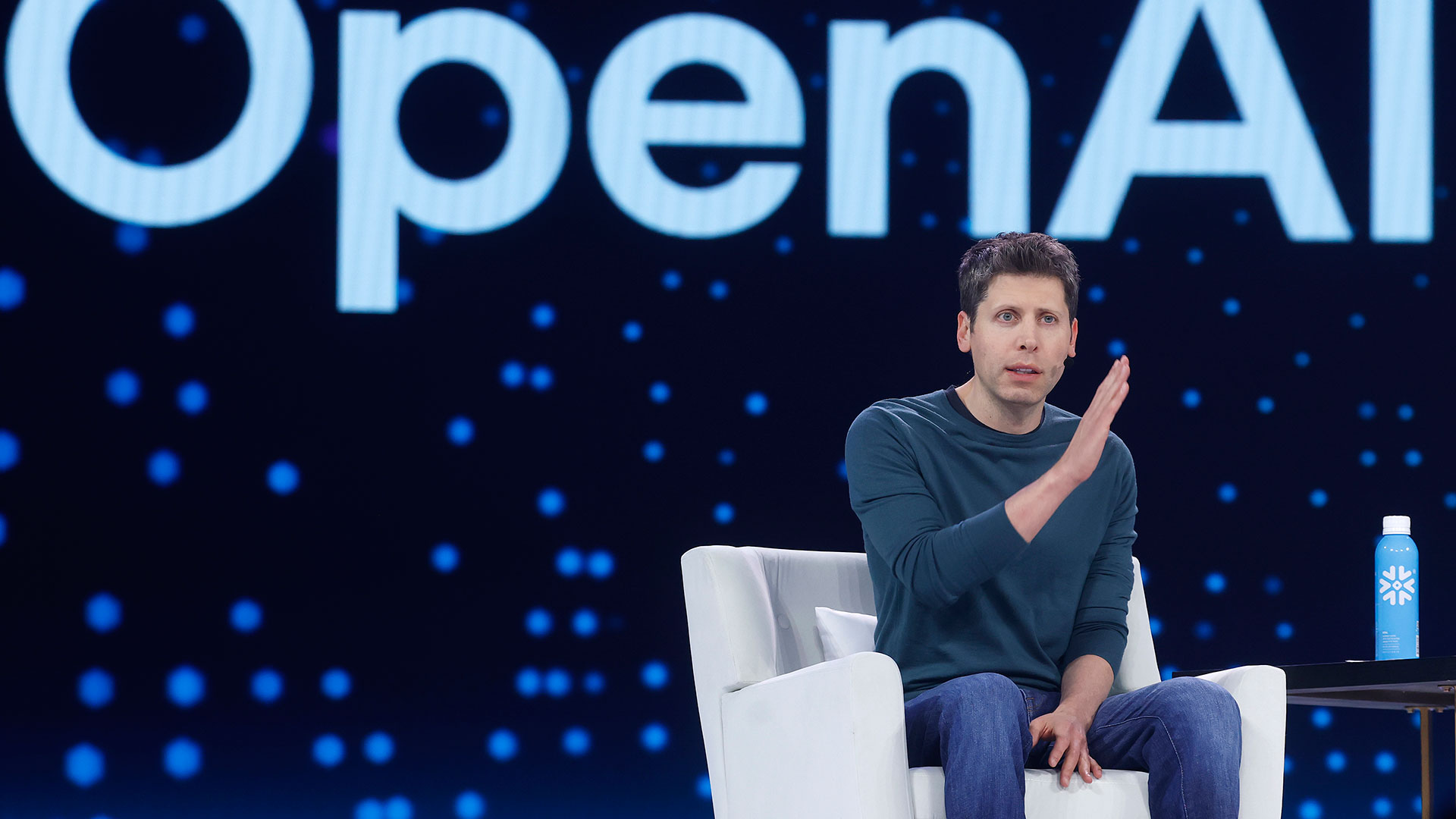Developer Offer
Try ImaginePro API with 50 Free Credits
Build and ship AI-powered visuals with Midjourney, Flux, and more — free credits refresh every month.
Is Your Job Real Work Sam Altman Sparks Debate
 (Image credit: Getty Images)
(Image credit: Getty Images)
Altman's Controversial Take on Modern Jobs
OpenAI CEO Sam Altman is no stranger to bold statements, but his recent comments at the company's DevDay conference stirred up significant debate. During a live interview, Altman made a sweeping claim suggesting that many jobs set to be replaced by AI might not have been “real work” to begin with.
He used a thought experiment to illustrate his point, imagining a farmer from 50 years ago looking at today's office jobs. “The thing about that farmer… [is that] they very likely would look at what you do and I do and say, ‘that’s not real work,’” Altman explained. He clarified that true, essential work like farming involves producing things people genuinely need, which made him simultaneously less and more worried about the coming changes.
Echoes of the 'Bullshit Jobs' Theory
Altman's perspective, while perhaps bluntly stated, isn't entirely new. It touches upon the core idea of David Graeber's theory of "bullshit jobs," which posits that entire sectors of the modern economy are built on bureaucratic tasks and box-ticking exercises that provide no real social value. This concept has resonated with many, from disillusioned office workers to policy experts, who feel their work is meaningless.
Does the Data Support the Claim?
Despite the anecdotal appeal of this idea, the data tells a different story. A 2021 study based on the European Social Survey found that only about five percent of people considered their jobs to be useless. A similar study in the U.S. placed the figure higher at around twenty percent. However, in both cases, researchers found that these feelings of pointlessness were more strongly linked to poor management and a negative work culture than the actual job's purpose. If a role is bogged down by micromanagement and inefficient workflows, even the most valuable work can feel meaningless. This suggests the problem isn't the job itself but the environment in which it's performed.
The Real Target: Automating Tasks, Not Eliminating Jobs
Where Altman's comment finds more solid ground is in what it implies about the nature of modern work. While most jobs are not inherently fake, many have become cluttered with layers of what could be called 'automatable junk.' This includes tedious compliance checklists, reports that go unread, and endless email chains summarizing meetings.
This is the kind of administrative, game-playing work that Large Language Models (LLMs) are exceptionally good at handling. When Altman clarifies that these models will primarily eliminate tasks rather than entire roles, he is likely referring to this bureaucratic overhead. In this respect, he may be correct. AI's greatest contribution might not be replacing workers, but freeing them from the unproductive tasks that make valuable jobs feel fake.
Compare Plans & Pricing
Find the plan that matches your workload and unlock full access to ImaginePro.
| Plan | Price | Highlights |
|---|---|---|
| Standard | $8 / month |
|
| Premium | $20 / month |
|
Need custom terms? Talk to us to tailor credits, rate limits, or deployment options.
View All Pricing Details

